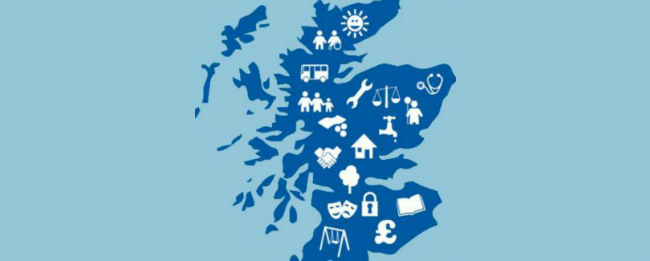This Friday, political leaders from various corners of the world will meet in Glasgow for a conference hosted by the Scottish Government on inclusive growth.
These policies are diverse – some relate to renewable energy, others seek to tackle gender inequality. Some encourage the repairing of items rather than throwing them away, others are about creating ways to ensure citizens participate fully in democratic processes.
There are even some that are about changing how the success of an entire country or economy is defined and measured. This last example is key because it speaks to the very purpose of our economic model – in short, what it is geared up to do.
For decades, the narrow pursuit of increasing Growth Domestic Product (GDP) has encouraged too many people to turn a blind eye to the environmental damage it creates, as well as the harm caused to people and communities.
Yes, such growth has been useful: in the world’s most economically developed countries, growth has already achieved much of what our ancestors hoped it would. It has brought unrivalled prosperity. But not everyone is benefiting. The challenge now is to get better at sharing this wealth: locally and globally.
Part of this challenge is to recognise that GDP growth is not a silver bullet. Not when it is associated with yawning inequality and unprecedented environmental degradation.
While the number of people living in extreme poverty around the world has decreased in recent decades, 700 million more people could have escaped poverty if action had been taken to reduce the gap between rich and poor. New global figures showed a vast rise – for the first time in more than a decade – in the number of children, women and men going hungry.
When the global economic system creates, and sustains an obscene gap between the richest and the poorest, it’s a system that is measuring and valuing the wrong things.
For example, we know that GDP fails to count the huge amount of unpaid work done by women across the world, including in Scotland, where around 60 per cent of unpaid carers are women.
And if more attention was paid to how the growth can harm the planet, we’d have a better chance at achieving environmental sustainability.
The reality is that GDP growth is struggling to deliver a rising quality of life in advanced economies. On the contrary, it may in fact be eroding this through a toxic combination of debt, a changing climate, inequality, and fragmented communities. As a result, governments spend huge amounts of money mitigating problems, like ill-health, rather than preventing them.
For Oxfam, tackling extreme economic inequality and sustaining the environment are key to reducing poverty. This means creating economies that enable people and the planet to thrive.
Scotland has taken some of the first steps to prioritise wellbeing and is laying the foundations for a fairer Scotland. There is a lot visitors to Scotland on Friday can learn.
A Poverty and Inequality Commission is in place with measures to ensure it operates fully independently of Government being pursued. The goal of reducing inequality also sits at the heart of the Scottish Government’s economic strategy and both the Fairer Scotland Action Plan and the Fair Work Convention point towards Scotland’s progressive future. In addition, wider measures of success, beyond GDP, are embedded within the National Performance Framework.
These initiatives have yet to result in tangible progress in reducing economic inequality and poverty in Scotland, and the First Minister should use her speech to recommit to achieving this.
However, there is undoubtedly momentum in Scotland which can help encourage others.
Friday’s gathering therefore creates an opportunity to pause and ask: what do we want from growth? What sort of society are we aiming for? And, how can we learn from, and work with, others to create wellbeing economies that put people and planet, not profit, first?
